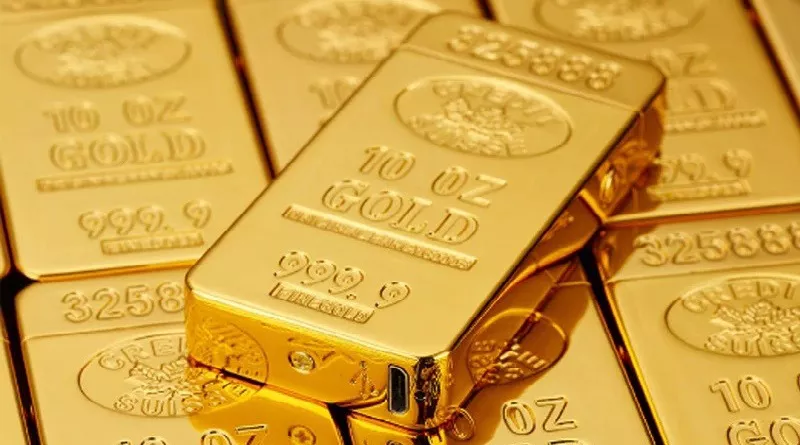I. Introduction to Gold Futures Contracts
Gold has been a symbol of wealth and prosperity for centuries, and it continues to be a coveted asset for investors and traders. Gold futures contracts provide a way to speculate on the future price of gold, allowing market participants to profit from price movements without physically owning the precious metal. In this article, we will delve into the basics of gold futures contracts, explaining the terminology and concepts associated with this popular financial instrument.
1. What Are Gold Futures Contracts?
Gold futures contracts are standardized financial agreements that obligate the parties involved to buy or sell a specific quantity of gold at a predetermined price on a future date. These contracts are traded on commodities exchanges, making them accessible to a wide range of market participants, including speculators, hedgers, and institutional investors.
2. Terminology Associated with Gold Futures
To understand gold futures contracts fully, it’s essential to grasp the key terminology used in this market:
Contract Size: This refers to the amount of gold covered by a single futures contract. For example, a standard gold futures contract may represent 100 troy ounces of gold.
Contract Months: Gold futures contracts have specific delivery months, such as February, April, June, August, October, and December. These months are when contracts expire, and delivery or settlement takes place.
Contract Price: The price at which the buyer and seller agree to exchange gold upon contract expiration. This is also known as the futures price.
Margin: Margin is the initial amount of money or collateral required to enter into a gold futures contract. It serves as a performance bond, ensuring that both parties fulfill their obligations.
Long and Short Positions: Traders in the gold futures market can take either a long position (buying the contract with the expectation that prices will rise) or a short position (selling the contract with the expectation that prices will fall).
3. The Role of Gold Futures in the Market
Gold futures contracts play several crucial roles in the financial markets:
Price Discovery: Gold futures provide valuable price information, helping to establish a benchmark for the current and future price of gold.
Risk Management: Hedgers, such as jewelry manufacturers or gold miners, use gold futures contracts to hedge against adverse price movements, reducing their exposure to market volatility.
Speculation: Speculators engage in gold futures trading to profit from price fluctuations. They do not have an underlying interest in physical gold but aim to capitalize on market movements.
Liquidity: Gold futures markets are highly liquid, facilitating easy buying and selling of contracts. This liquidity attracts a diverse range of market participants.
4. Settlement and Delivery
Gold futures contracts can have different settlement methods, and not all contracts result in the physical delivery of gold. Two common settlement methods are:
Cash Settlement: In cash-settled contracts, the parties exchange the difference between the contract price and the market price at the time of expiration. Physical gold is not delivered in this case.
Physical Delivery: Some gold futures contracts result in the actual delivery of gold. This typically occurs when a trader holding a long position decides to take delivery or when a short position holder does not offset their contract before expiration.
II. FAQs on Gold Futures Contracts
1. Are gold futures contracts suitable for individual investors?
Yes, individual investors can trade gold futures contracts. However, they should be aware of the risks involved and consider gaining experience in trading before participating in the futures market.
2. How do I calculate the profit or loss from a gold futures trade?
To calculate the profit or loss from a gold futures trade, you need to subtract the initial contract price from the contract’s closing price when you exit the trade. The result, multiplied by the contract size, will give you the profit or loss amount.
3. Can I take physical delivery of gold from a gold futures contract?
Yes, it is possible to take physical delivery of gold from a gold futures contract, but it’s not common among individual traders. Most traders close out their positions before the contract’s expiration date.
4. What factors influence the price of gold futures contracts?
The price of gold futures contracts can be influenced by a wide range of factors, including changes in supply and demand, economic data, geopolitical events, and market sentiment.
5. How can I get started trading gold futures contracts?
To get started, you’ll need to open an account with a brokerage that offers access to commodities futures markets. It’s also advisable to educate yourself about futures trading and develop a trading strategy.
6. Are there any risks associated with trading gold futures contracts?
Yes, trading gold futures contracts carries risks, including the potential for significant losses. Traders should be prepared to manage risk through appropriate position sizing and risk management techniques.
In conclusion, gold futures contracts provide a way for investors and traders to gain exposure to the price of gold without physically owning the metal. Understanding the terminology and concepts associated with gold futures is essential for anyone looking to participate in this market. Whether you are a speculator aiming to profit from price movements or a hedger seeking to manage risk, gold futures can be a valuable tool in your financial toolbox, provided you approach them with a clear strategy and an awareness of the associated risks.

